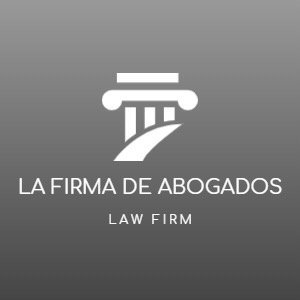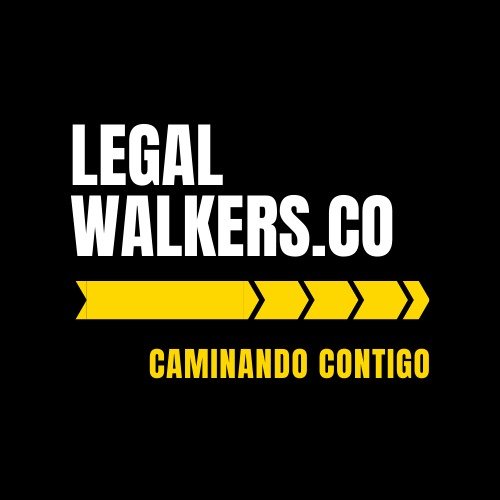Best Employer Lawyers in Bogotá
Share your needs with us, get contacted by law firms.
Free. Takes 2 min.
List of the best lawyers in Bogotá, Colombia
About Employer Law in Bogotá, Colombia
In Bogotá, Colombia, employer law encompasses a wide array of regulations and legal requirements that govern the employment relationship between employers and employees. This includes labor rights, employment contracts, workplace safety, and termination procedures. The law aims to protect the rights of both employers and employees, ensuring fair practices and preventing labor disputes. The Colombian Labor Code sets the foundational standards and guidelines, and it is crucial for employers in Bogotá to adhere to these laws to maintain compliance and avoid legal consequences.
Why You May Need a Lawyer
There are several situations where individuals and businesses in Bogotá may require legal assistance related to employer matters. Legal disputes can arise from contract negotiations, wrongful termination claims, discrimination cases, and workplace safety violations, among others. Employers may also seek legal advice to ensure compliance with local labor laws, draft employment contracts, or navigate complex labor regulations. A knowledgeable lawyer can provide guidance, represent you in legal proceedings, and help mitigate risks associated with employer law violations.
Local Laws Overview
The key aspects of local laws relevant to employers in Bogotá include:
- The Colombian Labor Code: This is the primary legal framework that governs employment relationships in Colombia, setting standards for hiring, working conditions, and employee rights.
- Employment Contracts: Legally binding agreements that must comply with the regulations outlined in the Labor Code, detailing the terms of employment and the rights and obligations of both parties.
- Mandatory Benefits: Employers are required to provide employees with specific benefits such as health insurance, pension contributions, and severance pay.
- Workplace Safety: Regulations designed to ensure safe and healthy working conditions, requiring employers to adhere to occupational health and safety standards.
- Termination Procedures: Legal guidelines that employers must follow when terminating an employee, including providing just cause and notice periods.
Frequently Asked Questions
What are the basic employee rights in Bogotá?
Employees in Bogotá have rights to a safe work environment, fair wages, social security benefits, and protection against unjust dismissal. They are also entitled to timely payment and, if applicable, overtime compensation.
Are employment contracts mandatory?
Yes, employment contracts are mandatory in Colombia and must specify the terms of employment, including job duties, salary, and duration of employment. These contracts can be indefinite, fixed-term, or by task.
What is the minimum wage in Bogotá?
The minimum wage in Colombia is set annually by the government and applies to all workers across the country, including Bogotá. It's important to stay updated as it can change each year.
How can an employee be legally terminated?
Employers must have just cause for termination, as defined by the Colombian Labor Code. Alternatively, if terminating without just cause, the employer must provide adequate severance pay in accordance with legal requirements.
What are the rules regarding working hours?
The standard workweek in Colombia is 48 hours. Any work beyond this constitutes overtime, which must be compensated at a higher rate, as prescribed by law.
How is workplace harassment handled under Colombian law?
Workplace harassment is prohibited and employers must have protocols to address complaints. Victims can seek legal recourse and require the employer to prevent and rectify harassment situations.
What is the role of unions in Bogotá?
Unions in Bogotá represent workers' interests and can engage in collective bargaining with employers. They play a significant role in negotiating better terms and protections for members.
How are disputes between employees and employers resolved?
Disputes can be resolved internally, through negotiation, or via the labor courts. Mediation and arbitration are additional methods encouraged to resolve disputes amicably.
Are there laws about employee privacy?
Yes, employers must respect employee privacy rights, including the handling of personal data in compliance with Colombia's data protection laws.
Can a foreigner be employed in Bogotá?
Foreigners need a valid work permit to be legally employed in Bogotá. The employer typically sponsors this and must ensure the position cannot be filled by local candidates.
Additional Resources
For further assistance, consider reaching out to the following resources:
- Ministry of Labor (Ministerio de Trabajo): This governmental body provides information and oversight regarding labor laws in Colombia.
- Chambers of Commerce: They offer legal advice and resources for businesses and employers.
- Labor Lawyers and Legal Firms: Specialized legal professionals can provide tailored assistance and representation in labor-related matters.
- Non-Governmental Organizations: Some NGOs focus on labor rights and can offer support and resources.
Next Steps
If you need legal assistance in employer-related matters, consider the following steps:
- Identify the specific legal issue or concern you are facing.
- Gather any relevant documents, such as employment contracts, warning letters, or written communications.
- Consult with a qualified labor lawyer in Bogotá for advice and to understand your legal options.
- Consider mediation or negotiation as an alternative to litigation to resolve disputes amicably.
- Stay informed about updates in labor laws to ensure compliance and protect your rights.
Lawzana helps you find the best lawyers and law firms in Bogotá through a curated and pre-screened list of qualified legal professionals. Our platform offers rankings and detailed profiles of attorneys and law firms, allowing you to compare based on practice areas, including Employer, experience, and client feedback.
Each profile includes a description of the firm's areas of practice, client reviews, team members and partners, year of establishment, spoken languages, office locations, contact information, social media presence, and any published articles or resources. Most firms on our platform speak English and are experienced in both local and international legal matters.
Get a quote from top-rated law firms in Bogotá, Colombia — quickly, securely, and without unnecessary hassle.
Disclaimer:
The information provided on this page is for general informational purposes only and does not constitute legal advice. While we strive to ensure the accuracy and relevance of the content, legal information may change over time, and interpretations of the law can vary. You should always consult with a qualified legal professional for advice specific to your situation.
We disclaim all liability for actions taken or not taken based on the content of this page. If you believe any information is incorrect or outdated, please contact us, and we will review and update it where appropriate.









